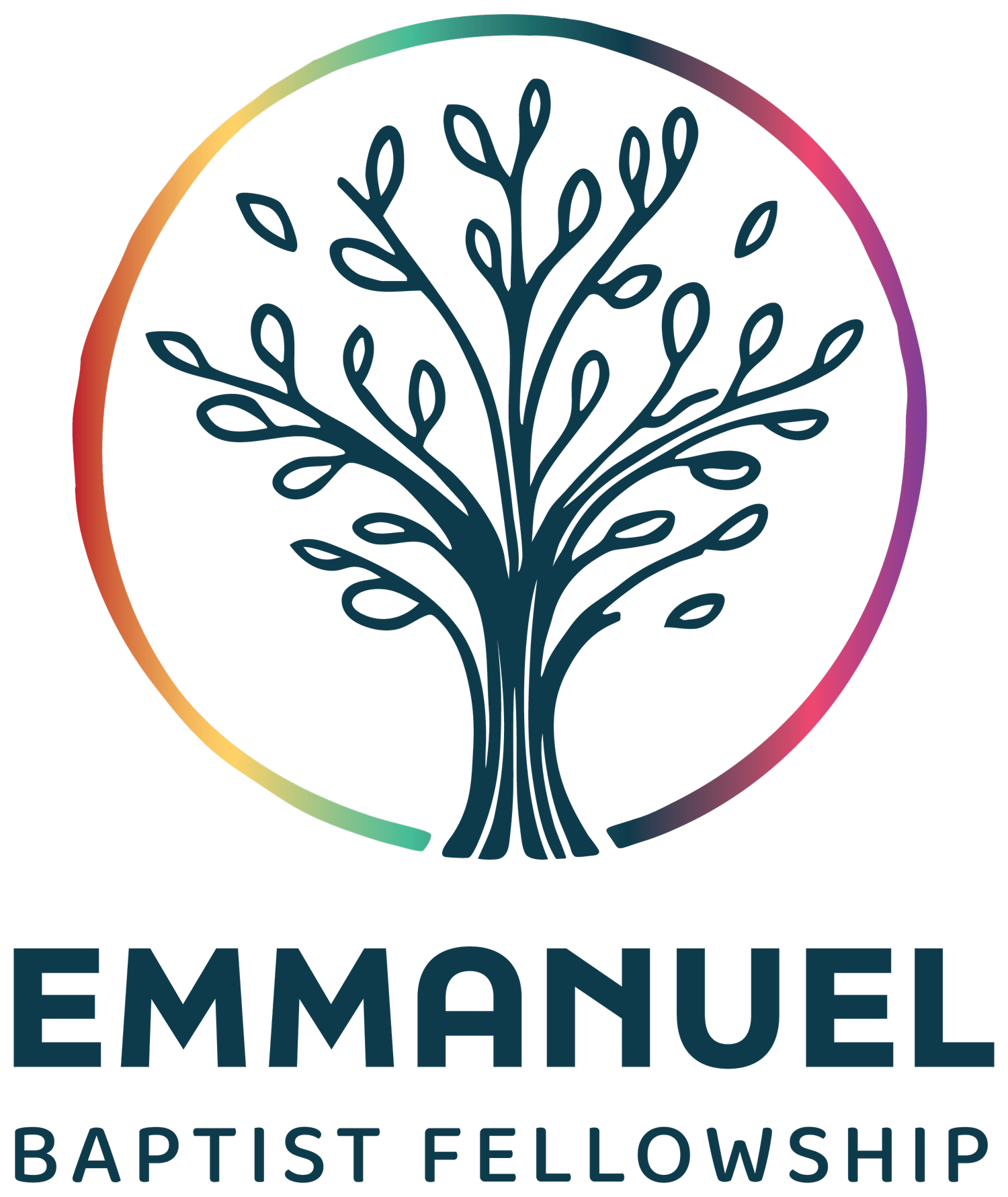Why Baptist?
Does the word “Baptist” make you cringe? Do you think of Westboro Baptist and those protesting and picketing against God’s inclusive love? That’s NOT Emmanuel Baptist Fellowship.
Maybe you’ve heard the phrase, “not that kind of baptist”. We don’t love to talk about all the things we’re not, but the things we are and the things we do. Those things are what makes us unique.
You can google the history of Baptist- the most relevant pieces are with the split of the Southern Baptist Convention in the late 80s/early 90s. Out of that split, a new, more moderate denominational partner was formed- the Cooperative Baptist Fellowship (CBF).
When EBF was founded, an intentional decision was made to solely align with CBF. Since then, we have remained strong in our roots with more moderate/progressive theological partners. Further down the timeline is our affiliation with the Alliance of Baptists, a radically progressive group of Baptists.
It’s funny (ironic?) because when you look at the root of Baptist, you see ‘four fragile freedoms’ that are vital to who we are.
These are the freedoms that root us:
Soul Freedom: we believe that every person is given agency by God to make choices in their spiritual lives, and that those choices. In our commitment to this freedom, we recognize that our pastors join us on the journey as guides along the way. (A note from Judith: I certainly don’t know all the things. I’ll preach naming a different interpretation. And it’s just that- an interpretation. Hearing different perspectives opens our mind and our faith. It lets us think more broadly about our faith and the world around us. We’re on this journey together).
Bible Freedom: because we are ultimately accountable to God for the choices in our spiritual lives, no interpretation of the Scripture is binding on another believer. Rather, we recognize the freedom of each person to study and interpret the Scriptures for themselves. In commitment to this freedom, we recognize that our church will have theological diversity without division; we will not force agreement. (A note from Judith: again, your interpretation of Scripture is YOUR interpretation. We discuss and ask questions openly and freely. We stay curious about how God is using this Scripture through us.)
Church Freedom: we recognize no ecclesiastical authority over our church, but rather assert the freedom of our local faith community to listen to the Holy Spirit and follow in the way that we believe that God is calling us. In other words, no one gets to tell us who to hire, fire, or what to do! We get to decide what’s best for us. In commitment to this freedom, we will work cooperatively with CBFSC and the Alliance of Baptists, but those groups will not have control over the mission and ministry of our faith community.
Religious Freedom AKA Separation of Church & State: we believe that these freedoms can only truly be exercised within a society where every person has the right to pray and worship – or not – as they choose. In commitment to this freedom, we will partner with those in the interfaith community to create a societal framework that promotes liberty and justice for all. The Baptist Joint Committee’s work centers around the constitutional principle that to best protect religious liberty, government must not interfere with matters of faith.
To learn more about religious liberty, watch this video: What We Do
Resources:
Gardner, Andrew, Reimagining Zion: A History of the Alliance of Baptists (Gig Harbor, WA: Nurturing Faith Inc.), 2015.
Walter B. Shurden, The Baptist Identity: Four Fragile Freedoms (Macon, GA: Smyth & Helwys Publishing, Inc.), 1993.
"What is religious liberty?" The Baptist Joint Committee for Religious Liberty. http://bjconline.org/religiousliberty/.
"Baptist Identity Introduction," Cooperative Baptist Fellowship. June 2017. https://vimeo.com/223198709


